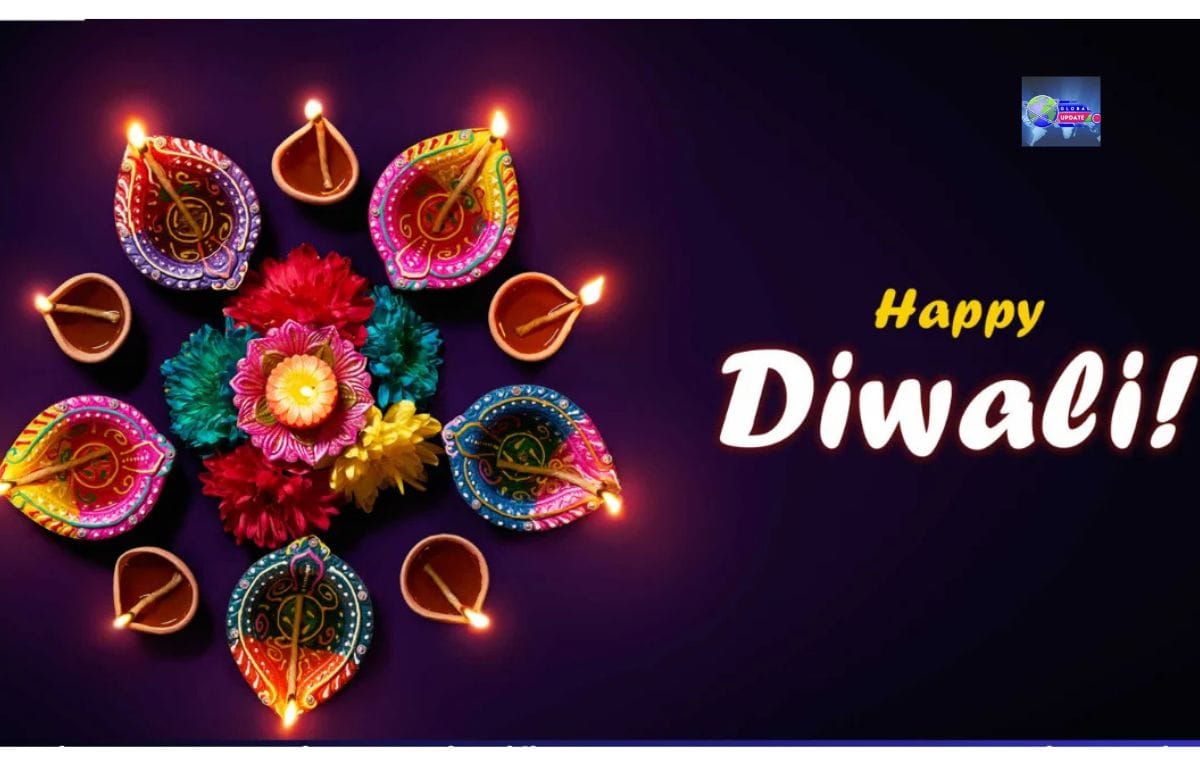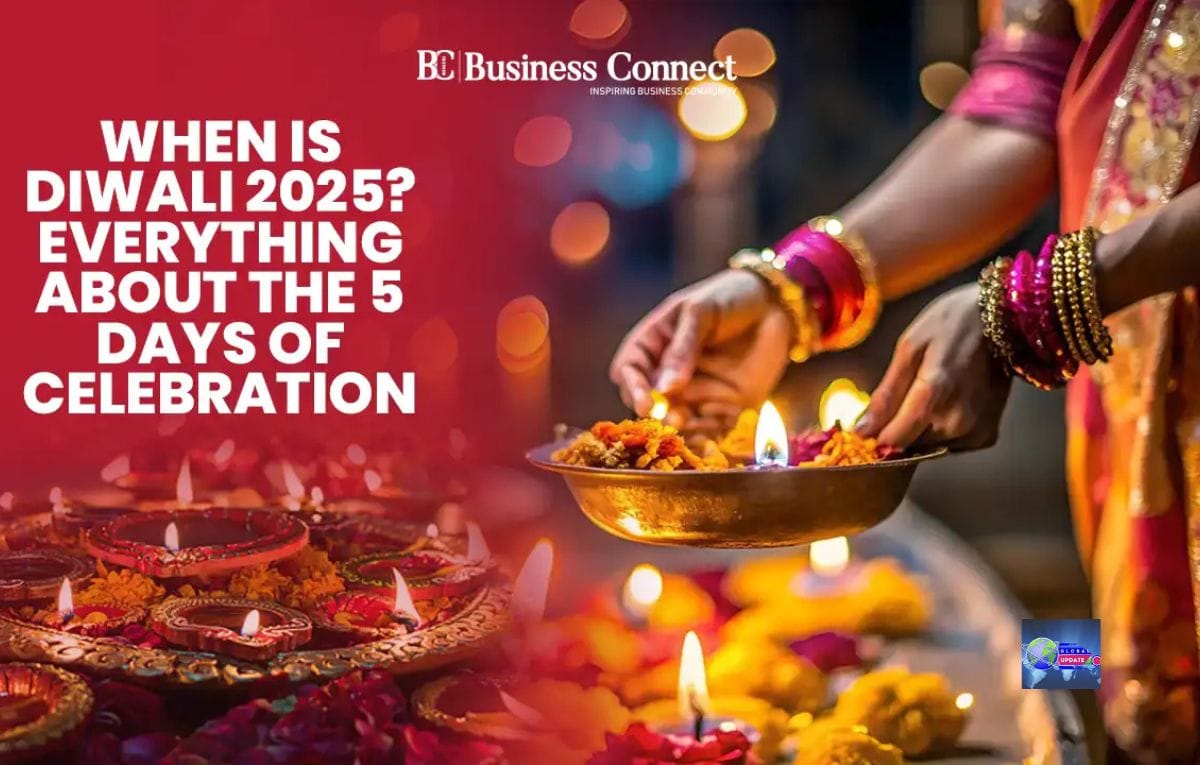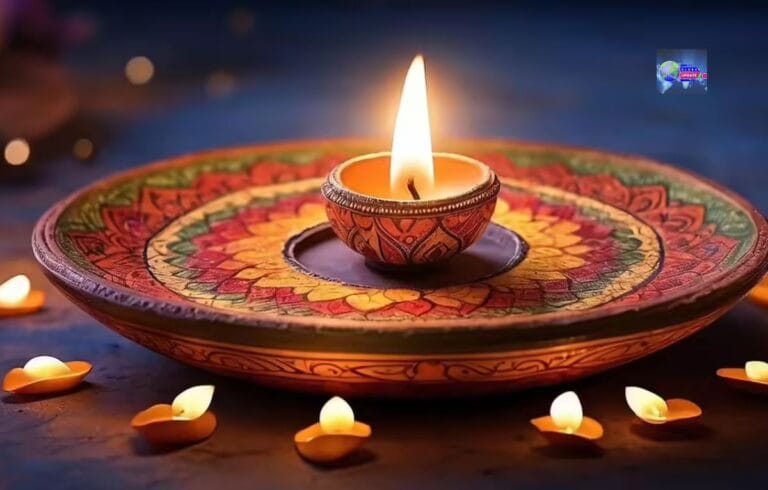Diwali, also known as the Festival of Lights, is one of the most celebrated festivals in South Asia, symbolising the victory of light over darkness and good over evil.
Millions of Hindus, Sikhs, Jains, and Buddhists around the world observe this festival. It marks new beginnings, prosperity, and happiness.
Families gather during Diwali to exchange gifts, offer prayers, and indulge in sweets, while homes adorn themselves with oil lamps (diyas), candles, and colourful rangolis.
Worshipping God is the primary day of the celebration, which often spans five days. On the primary day of the festival, people worship Goddess Lakshmi, a symbol of prosperity and wealth.
Beyond its religious importance, Diwali promotes unity, joy, and hope, reminding everyone to let light and kindness shine in their hearts and communities.

What is Diwali?
Diwali, often called the “Festival of Lights,” is celebrated across many communities in India and beyond. The name comes from the Sanskrit word “Dīpāvali,” which means “row of lamps.”
The festival typically falls between mid-October and mid-November, depending on the lunar calendar. Core Meaning & Symbolism
Diwali symbolises the triumph of light over darkness, knowledge over ignorance, and righteousness over evil.
Lighting oil lamps (diyas), decorating homes, and sharing joy all serve as symbolic acts to bring this meaning into personal and communal life. It’s also a time for fresh starts and new beginnings.
Myths & Stories
The festival draws on several mythological narratives:
- In many parts of North India, Diwali commemorates the return of Lord Rama to Ayodhya after defeating Ravana.
- In southern traditions, it marks Lord Krishna’s victory over the demon Naraka.
- Within Jainism, Diwali marks the moksha (liberation) of Lord Mahavira.
These varied stories highlight why the festival has deep cultural and multi-religious resonance.
How It’s Celebrated
Festivities typically span five days (with regional variations). Customary practices during Diwali include home cleaning, decorating with rangolis (artwork made of colored powders or petals), lighting oil lamps inside and outside homes, offering prayers (puja), wearing new clothes, and sharing sweets and gifts.
Many people pray to Goddess Lakshmi and Lord Ganesha on the main day to ask for good fortune.

Diwali has a broader cultural and economic impact.
Diwali is also a significant season for shopping, new purchases, and economic activity. It often boosts consumer spending on home décor, jewellery, sweets, and festive ware.
Beyond commerce, the festival fosters family and community bonds, with large gatherings, special meals, and the exchanging of gifts.
Contemporary Themes & Sustainable Celebrations
While traditional practices remain strong, recent years have seen emphasis on eco-friendly Diwali rituals—for example, using natural colours for rangoli, LED or solar lighting instead of heavy fireworks, and mindful waste reduction.
This tradition reflects a growing sensitivity to the environment and community well-being, alongside the celebration of these values. countries;
Diwali has universal & global significance.
Diwali’s appeal has grown beyond its Indian subcontinent roots. It is celebrated in many recognised diaspora communities and appreciated for its universal message of light, hope, and renewal.
Here’s a current update (as of October 2025) on how Diwali is being observed in Pakistan, especially in the province of Sindh—drawn from official announcements and reliable news sources.
Holiday Declaration in Sindh
The Sindh provincial government has announced a two-day public holiday for government employees. The two-day public holiday will be observed by the Hindu community on October 20 and 21, 2025, in observance of Diwali.
The notice instructs government and semi-government departments, educational establishments, and local governments to maintain critical services while allowing for festivities.

Date & Holiday Status Across Pakistan
Holiday calendars confirm this:
- The website TimeandDate lists Diwali/Deepavali 2025 in Pakistan on Monday, October 20, 2025. According to the listing, Diwali will be officially recognised as an optional holiday.
- Additionally, it is recognised as a regional holiday for the Hindu community in Sindh.
- Various sources confirm that while the Hindu minority across Pakistan celebrates Diwali, it is not a nationwide public holiday for all sectors.
Observance & Community Note
While detailed media reports of large-scale celebrations this year in Pakistan are limited. The holiday declarations indicate that the Hindu community’s celebrations in Sindh formally recognized and supported.
The actual celebration and puja rituals will take place from October 20–21, in accordance with the lunar calendar.
In summary,
Diwali isn’t just one night of lights—it’s a layered festival with spiritual significance and cultural depth.
The festival’s core remains to let the light shine—in our homes, in our hearts, and in the world around us, whether viewed through myth, ritual, commerce, or community.



